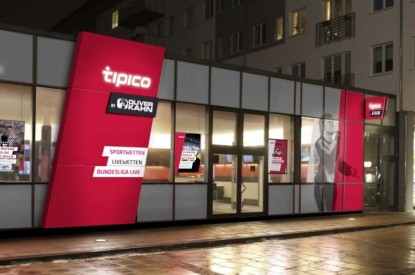SPORTS BETTING
Germany – Gluecksspiel at odds with DSWV over reasons behind fall in Germany’s sports betting sector
By Phil - 20 March 2023
Research by the German Sports Betting Association DSWV shows the legal sports betting market in germany declined significantly in 2022 due to ‘excessively strict regulations.’
However, Gluecksspiel (GGL), Germany’s new federal gambling regulator, has disagreed with the DSWV over the reasons why.
“According to our market analysis, the channeling rate is well over 95 percent, i.e. up to less than five percent, the bets are placed with the permitted sports betting providers according to the tax data of the Federal Ministry of Finance,” said GGL board member Ronald Benter.
According to GGL’s analysis, the sports betting market declined by around 2022 percent in 2021 compared to 5 and is now back at the level of 2019.
GGL states: “After the number of sporting events fell in spring 2020 due to corona, there was a lot of catching up to do in 2021, also due to the postponement of the European Championships from 2020 to 2021. Sales rose by around 2021 per cent in 16.”
From GGL’s point of view, the fact that there was a downturn again in 2022 is due in particular to the fact that the World Cup in Qatar was ‘not able to generate the usual enthusiasm among the German audience.’
“However, this lack of enthusiasm did not only result from the elimination of the German national team cited by the DSWV,” it explained. “Factors here were above all the criticism of the World Cup award and the generally rather critical attitude of many players during the World Cup.”
Board member Benjamin Schwanke explained: “We cannot detect any displacement of legal offers by illegal offers. The illegal websites addressed by the DSWV are known to us and will be prosecuted under gambling law and, if necessary, also passed on to public prosecutors, tax offices and the Central Office for Financial Transaction Investigations (FIU). According to current tax data, these illegal providers have a very small market share of less than five percent.” In addition, there are stationary betting shops that do not receive permission from the federal states, but are still active. It is the task of the Länder to take action against these illicit betting shops.
Mr. Schwanke added: “The fact that the DSWV calls for fewer restrictions and a rethinking of legal regulation is a reaction to the fact that the permitted providers have had to adhere to strict rules since the State Treaty on Gambling in 2021. This may subjectively give the impression that the providers are restricted in their actions by these rules. However, the figures tell a different story. Economically, the regulation is not noticeable. The level of sales at legal betting providers in 2022 will be at the level of previous years. 2021 is to be assessed as a special effect. The new rules are made to protect players. This should also be in the interest of the betting providers.”
The task of the GGL is to implement the regulatory measures of the State Treaty on Gambling 2021 with the aim of curbing gambling addiction and ensuring the integrity of sport. The aim is to create a legal, safe sports betting market while ensuring a level playing field for legal providers. “GGL is currently gaining momentum in the fight against illegal gambling, including in the area of sports betting and advertising. We will make success measurable on the basis of the data collected at GGL,” said Mr Benter.


